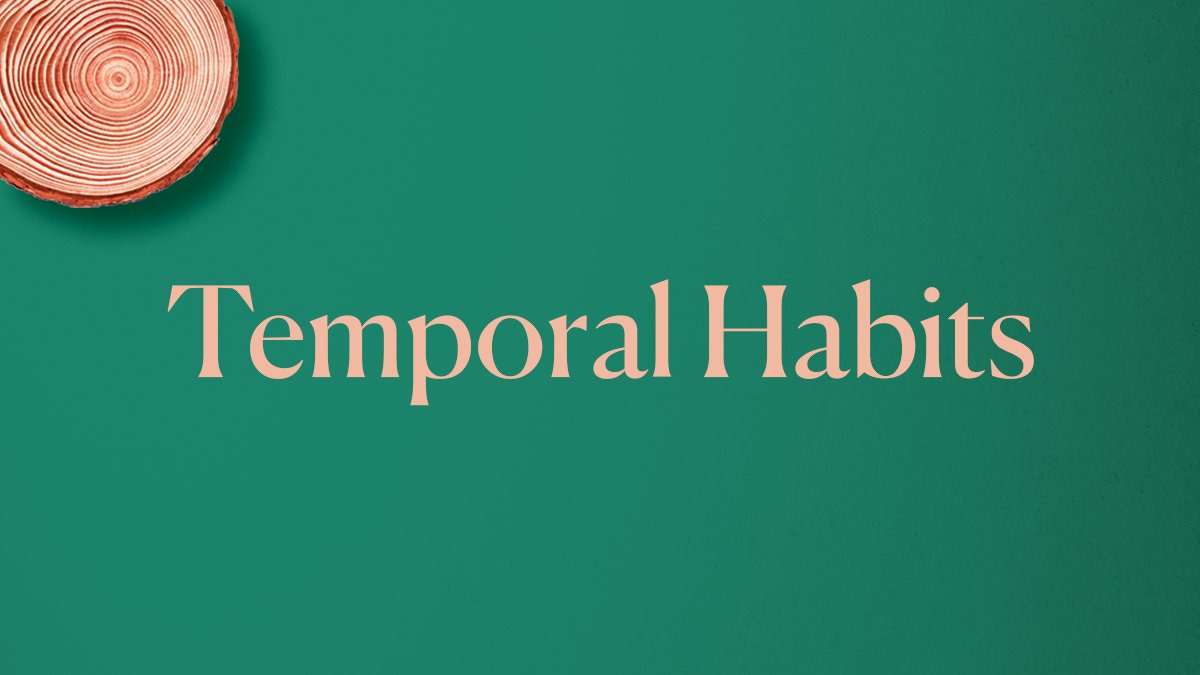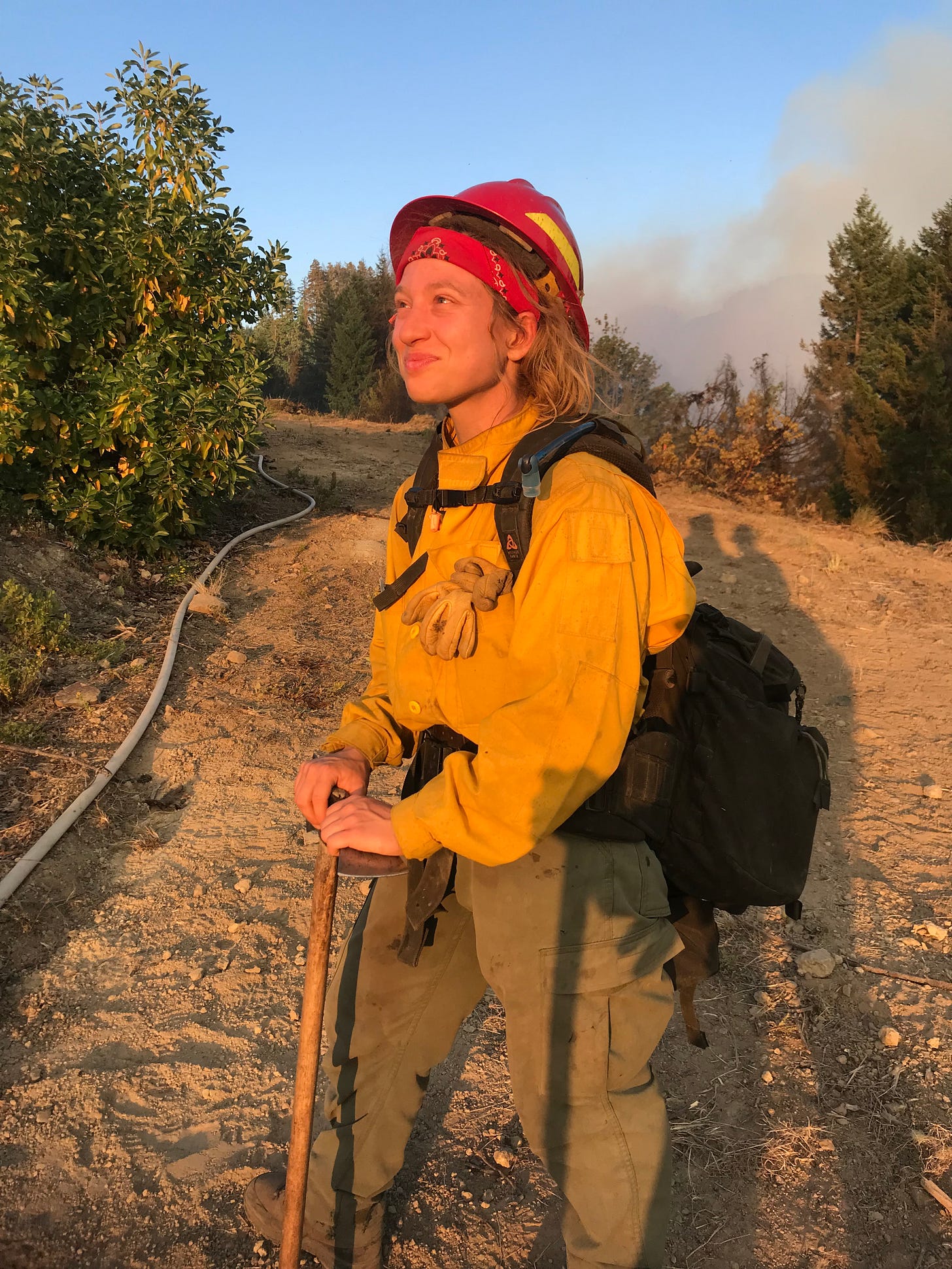The lexicon of "long-terminology"
The Long View: A Field Guide - 1,000 ideas for the next 1,000 years
You’re reading The Long View: A Field Guide, a newsletter about long-term thinking.
Hello there,
Before diving into the latest edition of The Long View: A Field Guide… a bit of news.
On 30 March – next week! – I’m really excited to say that my book The Long View: Why We Need to Transform How the World Sees Time will be published. It’s taken around five years to get this point: a long think, a long, long proposal, and a long, long, looong time researching and writing. I can’t wait to see it finally reach the world.
So far the response has been wonderful, with support from a whole range of authors I admire, such as Ian McEwan, plus various extracts, articles, films and reviews of the book coming out soon.
If you’d like to get hold of The Long View, my publisher is offering an exclusive 25% discount code for the UK readers of this newsletter… scroll down to the end to use it. Or you can get it here from other retailers, as well as the e-book and Audible version (read by me!)
With the book’s launch and so much news to share, I’ll be publishing here a little more frequently here over the next few weeks. (I promise not to spam you, and it’s only temporary.) I’ll also be inviting other members of The Long View team to co-write posts too - scroll down to meet one of them, my colleague Xander Balwit.
Thank you so much for reading my newsletter, and to all of you who have shared and supported my work over the past few years. One of the wonderful things about writing this Substack has been hearing and learning from you – my book is better as a consequence – so please don’t hesitate to get in touch if you’d like to say hello.
…anyway, on to this edition of the Field Guide, which is about:
Why we need long-terminology
Long-time readers of this Substack will know that I’m a fan of “long-terminology” – new words and phrases that relate how humanity thinks about time. Today, I wanted to return to that concept.
Some of the better-known examples of long-terminology include ‘cathedral thinking’, the ‘long now’ or ‘timefulness’. But there are many others that I think deserve more attention. After all, if we lack the language to talk about the long-term, then we’re less likely to think about it.
Over the past few years, I’ve been assembling a long-term lexicon that now has 60+ entries. On my Twitter feed, I’m currently sharing a word a day if you want to follow along: see #longterminology. I’d also love to hear from you if you’d propose your own new words or phrases.
Here are a few of the terms I’ve shared so far:
One new piece of long-terminology that emerges frequently throughout my book and one that is central to understanding the focus on ‘the now’ is time-blinkered. I describe this as unwitting, invisible short-termism: a lack of awareness of long-term consequences and responsibilities that’s so hidden from view that it barely gets mentioned.
Politics, business, and media can all be time-blinkered, as can our personal behaviours and projects. It is a trait that has become so embedded in modern life that people are not even aware it’s there. Identifying the causes is, I believe, crucial if we want to discover a longer view.
Amplifying the time-blinkered traits of societies are the temporal stresses. In the book, I define these as external pressures that inadvertently and invisibly shorten people’s views, such as targets and metrics that discourage a longer-term perspective, or loud, salient events that distract attention away from the future. Whether they manifest as quarterly reporting or sensational breaking-news stories, temporal stresses stem from and produce time-blinkered behaviour.
Crucially, though, none of these pressures is necessary for a functioning society, and they can be avoided if we can identify what they are.
Another major influence on our timeviews are the temporal habits. This is a collective term I use for the habits of mind and cognitive biases that shape how we think about the past, present, and future. They include:
Salience Bias - the tendency to make decisions about the future based on what is loud, local and urgent in the present.
Shifting Baseline Syndrome - a form of cross-generational amnesia where each generation accepts the world they inherit as the norm.
Temporal Distancing - the way that the mind tends to entangles time with space, so that the past and future feel “distant” rather than “near”.
…but there are many more.
Some temporal habits are subconscious, or at least go unidentified. However, if we can grow our awareness of them, we can see more clearly how they shape our temporal perspective.
A final piece of long-terminology to highlight – long-minded. I wrestled a lot with how to describe what it means ‘to think long-term’. For a while, I used the term “long-termist” – with a hyphen – but that is now entangled with longtermism, which has a specific meaning. So, I now prefer long-minded.
Long-mindedness, to me, means stepping back and seeing where we sit on time’s long arc: learning from the deep lessons of history, as well as nurturing and maintaining an awareness of the impacts of actions on the future.
It also complements present-mindedness: which means to consciously and mindfully focus on the moment when it matters, whether that is to tackle urgent crises or simply enjoy life’s pleasures. Unlike time-blinkered thinking, this is a positive form of short-termism. After all, if we thought long-term all the time, we’d miss out on what matters now.
I dive deeper into these concepts – and many more – in my book. But the long-terminology glossary remains open to entries, so if you have suggestions, ideas, or additions, please reply to this email or get in touch via Twitter!
Introducing – Xander Balwit
Welcoming a new member of The Long View Field Guide team:
Xander Balwit was born and raised in Portland, Oregon. There amidst the state’s craggy coastlines and in its deep wilderness, she cultivated her sense of timefulness. Her penchant for natural history, science, and intellectual history drew her from one epoch-shaping idea to the next. She has worked in politics and in wildland firefighting, two domains where the long view is often eclipsed by salience and immediacy but where it matters more than ever. She has since turned to writing and communications as a way to help others expand their time views and work towards better futures.
Xander has been helping with external publicity and promotion for The Long View and will be contributing to this newsletter.
Pre-ordering The Long View
The Long View is published on Thursday 30 March - next week!
If you’d like 25% off the cover price and live in the UK, visit the Headline shop, and use this code at checkout: LONGVIEW25
The book is also available via many other retailers. For options, visit the book’s Hachette page here (which also has e-book and audio options) or Book Depository which promises free international shipping.
best wishes,
Richard & Xander - The Long View Team











I just read Richard Fisher's article in New Scientist and look forward to receiving his book. FWIW, here's what I wrote, as a Letter to the N.S. editor:
Richard Fisher's article is very timely (!). My grandchildren, now 4 and 6, have provided the grounds for me to embrace a "pronounced future perspective." It's a very palpable perspective.
When I hug my grandchildren, I'm hugging the grandparents (assuming procreation along the way!) of their grandchildren, who they would some time hug. And those grandchildren of grandchildren would be about my current age (75) in 2150. Until recently, I would have thought 2150 was impossibly far off, too far off to realistically imagine. After all, the climate disruption projections are for dates like 2030 or 2050 or 2100 in the longer ones.
It's not far off in my mind now that I can feel that connection of hugs and love.
The year 2150 is about 125 years from now. My grandparents, who I remember well, were born about 125 years ago. Not that long ago. I have a human connection to persons who lived 125 years ago and a future human connection to persons who will be alive 125 years in the future (should humanity survive that long.) I deeply care about them.
Our infrastructure decisions, land use planning, decisions related to population growth and our ethical and moral growth need to look that far ahead. We need to feel compassion for those who live now and for those who come after us and act on it.
As an individual, I believe I cannot not do everything in my power, what little power I may realistically have, no matter how small and trivial seeming or large, to lay the groundwork for a decent future for my own descendants and all those who will share our planet in 2150.
Just pre-ordered the book. Looking forward to it!